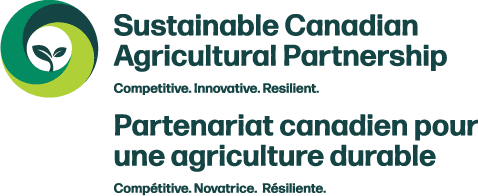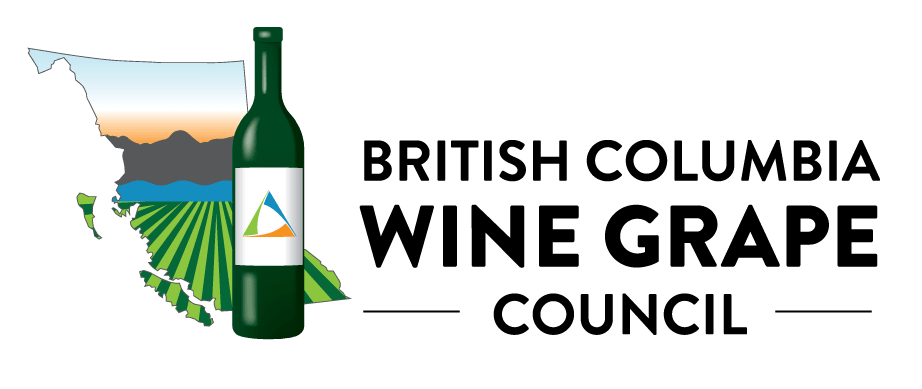With the first year of the Sustainable Canadian Agricultural Partnership (SCAP) Grape & Wine Science Cluster completed, each of the activities has provided a brief update on their research done under the program in 2023-2024. Click below to view each research priority area's list of activity summaries.
We thank Agriculture & Agri-Food Canada, the British Columbia Wine Grape Council, Grape Growers of Ontario, Ontario Grape and Wine Research Inc., Conseil des Vins du Québec, Nova Scotia Department of Agriculture, and the Grape Growers Association of Nova Scotia, along with our various industry partners, for funding this research. For more information, please contact us.
- Climate Change & the Environment
- Economic Growth & Development
- Sector Resilience & Societal Challenges
This priority area focuses on research aimed at developing solutions to reduce greenhouse gas emissions and sequester carbon for agriculture to contribute to 2030 and 2050 climate targets. For the Grape & Wine Cluster, research activities in this priority area will:
- Promote sustainable viticulture and winemaking by developing and/or improving strategies to minimize the industry’s environmental impact;
- Positively contribute to national climate targets;
- Adapt to the challenges brought on by climate change.
This priority area focuses on research to increase value-added domestic and export sales of agriculture, food and agri-based industrial products, develop emerging technologies that address labour challenges, increase productivity, and improve input use efficiency, and support alternative productive systems. For the Grape & Wine Cluster, research activities in this priority area will accelerate the economic development of the industry by:
- Optimizing grape and wine quality and increasing market share of Canadian wines;
- Addressing the economic impact of viral, microbial, and insect pressures;
- Expanding knowledge of varieties and vineyard practices that will foster greater productivity.
NOTE: Activity 18 - Growing More Resilient and Hardy Wine Grapes in the Face of Climate Change in an Eastern Canadian Environment was approved for a four-year timeline beginning in 2024-25. Research summaries for this activity will be available starting next year.
This priority area focuses on research aimed at improving sector resilience in response to market, societal and other pressures. For the Grape & Wine Cluster, research activities in this priority area will bolster the resilience of the Canadian grape and wine industry by:
- Developing and/or improving strategies to manage pressures on vineyards and wineries caused by climate change, grapevine viruses/diseases, and pests.
Activity 5 - Managing Grapevine Viruses and Their Arthropod Vectors
Activity 6 - Sustainable control of grapevine trunk diseases under a changing climate
Activity 10 - Grapevine trunk disease: an under-rated threat to the Ontario grape industry?
Activity 13 - Grapevine red blotch virus: insect vector biology and ecology
Thank you to our funding Partners:








